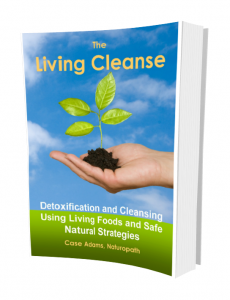Roundup® 125 Times Worse than Glyphosate

Roundup pesticide called carcinogenic.
A resounding of research and authorities has been pointing to the cancer-causing toxicity of glyphosate and its central branded vehicle, Roundup®. Are we listening? After all, practically every commercial food is now potentially sprayed with this, and many foods now contain it.
Glyphosate and hence its leading brand Roundup® was declared safe for humans in 2001 following industry-funded tests showing low toxicity levels.
Tobacco was also declared safe for humans at one time.
Just as the science eventually caught up with the commercialism of tobacco, scrutiny of glyphosate is growing, as a review of the older research and some new evidence is showing the increased potential of this herbicide’s toxicity.
In this article
WHO declares glyphosate “possibly carcinogenic”
After an assessment of its carcinogenic toxicity, the World Health Organization’s International Agency for Research on Cancer (IARC) announced on March 20, 2015 classified glyphosate as a category 2A chemical – which is “possibly carcinogenic to humans.”
The announcement from the WHO stated the acceptable daily intake (ADI) calculated from laboratory animal testing is 0.3 milligrams per kilogram of bodyweight per day.
Safe levels of glyphosate exposure have never been determined. Rather, supposedly safe levels have been gleened from industry studies. According to a paper published in the Journal of Environmental & Analytical Toxicology in 2012, much of the research was either too short or used too few animals in the tests to provide clarity on glyphosate’s toxicity.
Roundup® worse than glyphosate
Yet much of these studies were done on glyphosate. Isn’t this the same as Roundup®? Think again. Roundup® is a concentrated glyphosate herbicide that contains additives that may well add to its toxicity.
A 2014 study from Paris’ University of Caen and the France’s independent research organization CRIIGEN confirmed that Roundup® is not simply glyphosate. The study found that Roundup® was at least 125 times more toxic to human cells than its central ingredient, glyphosate.
In fact, most toxicity studies have been done using pure glyphosate instead of the concentrated form of Roundup®.
This study also found that Roundup® was one of the most toxic of the other products tested. Here is what the researchers had to say about Roundup® after carefully testing it with human cells and comparing it with two other herbicides, three insecticides and three fungicides:
“It is commonly believed that Roundup is among the safest pesticides. This idea is spread by manufacturers, mostly in the reviews they promote, which are often cited in toxicological evaluations of glyphosate-based herbicides. However, Roundup was found in this experiment to be 125 times more toxic than glyphosate. Moreover, despite its reputation, Roundup was by far the most toxic among the herbicides and insecticides tested. This inconsistency between scientific fact and industrial claim may be attributed to huge economic interests, which have been found to falsify health risk assessments and delay health policy decisions.”
Other research points to more toxicity
While “possible carcinogen” may be enough to dissuade most from using this herbicide, what is worrying is that it is increasingly being sprayed onto foods, and these foods contain glyphosate.
There is lots of research to follow on this topic, so we’ll concentrate on one alarming finding. A 2013 study published in the Journal of Environmental Analysis and Toxicology reported that cattle fed feed sprayed with Roundup® had increasingly high levels of stillbirths among their calves over a period of two years. The researchers found that the dead calves were deficient in manganese, and 60% of the calves with birth defects had low manganese levels.
Deficiencies in manganese have been associated with numerous neurological disorders among humans, including autism and Alzheimer’s disease. And it is quite suspicious that the growth of glyphosate use in corn and soy practically mirrors the increases in autism and Alzheimer’s disease:

Carcinogenic scale.
While this relationship is still an association, there is a metabolic link to consider. When manganese deficiency is compared to other conditions, we find the association becomes increasingly plausible.
Manganese deficiency is associated with decreased liver health, infertility, cognitive issues and more. The exploration into these associations runs deep and the jury is still out. What is known at this point is that glyphosate has a dark side, and Roundup® has a darker side.
One of the main ways to get glyphosate out of our foods is to buy organic foods. We can change things with our wallets.
REFERENCES:
Mesnage R, Defarge N, Spiroux de Vendômois J, Séralini GE. Major pesticides are more toxic to human cells than their declared active principles. Biomed Res Int. 2014;2014:179691. doi: 10.1155/2014/179691.
Pollack A. Weed Killer, Long Cleared, Is Doubted. NY Times, Mar 27, 2015
Cressey D Widely Used Herbicide Linked to Cancer. Scientific American/Nature. March 25, 2015
Antoniou M, Habib MEM, Howard CV, Jennings RC, Leifert C, et al. (2012) Teratogenic Effects of Glyphosate-Based Herbicides: Divergence of Regulatory Decisions from Scientific Evidence. J Environ Anal Toxicol S4:006. doi: 10.4172/2161-0525.S4-006.
Krüger M, Schrödl W, Neuhaus J, Shehata AA. Field investigations of glyphosate in urine of Danish dairy cows. J Environ Anal Toxicol. 2013;3:1–7.
Samsel A, Seneff S. Glyphosate, pathways to modern diseases III: Manganese, neurological diseases, and associated pathologies. Surg Neurol Int. 2015 Mar 24;6:45. doi: 10.4103/2152-7806.153876.















